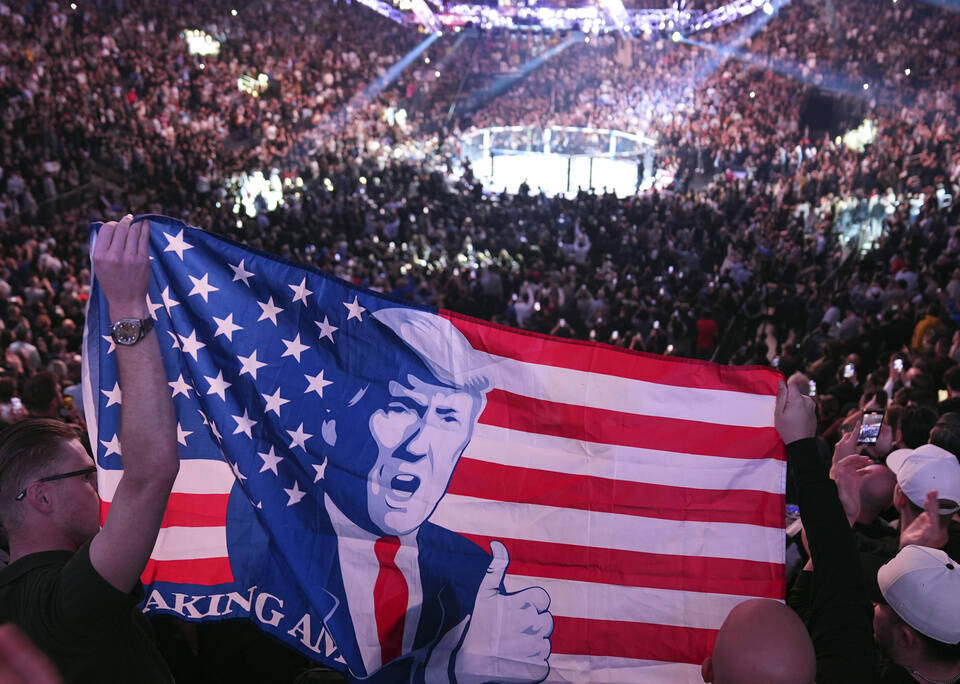In the wake of Donald Trump’s massive victory in the 2024 election that saw him win both the popular vote and the Electoral College, it became ‘cool’ to a MAGA supporter. Athletes were performing the ‘Trump dance’ on football fields, soccer pitches, and UFC octagons around the globe, while voters took to social media to make their allegiances known.
The so-called silent majority was silent no more. And while it remains to be seen how public opinion holds on Trump over the next four years, it seems like the era of being ostracized or cancelled for supporting him is drawing to a close.
On Wednesday’s show, Megyn was joined by filmmaker and author Justine Bateman to discuss why she believes Trump’s win signals the end of the “mob mentality” cancel era.
‘Mob Mentality Momentum’
Bateman considers herself non-political and has not commented on who she voted for in 2024, but she believes Trump’s win signals a “long overdue” correction on what has been culturally ailing the U.S.
“That mob mentality momentum that is necessary to maintain an atmosphere where your job can be destroyed, your social standing can be destroyed, your children’s lives at their school can be destroyed… ended with the very large national poll of what people want, which is our national presidential election,” she explained.
While the “momentum” of the “mob mentality” has helped fuel cancel culture in recent years, Bateman noted that it is nothing new. “That is the kind of momentum you need for things like… the McCarthy trials… in the 1950s, the witch burning of the 1600s, or even things like tulip mania of the 1600s,” she said.
But something needs to change – à la the decisive election of new leadership – to thwart and, in time, undo the mob mentality. “If you don’t have that momentum, you don’t have the structure you need to ruin people’s lives,” Bateman said. “So, that is over.”
#MeToo Madness
In Bateman’s view, this current iteration of cancel culture can be traced to the #MeToo movement, which gained widespread attention in 2017 when the allegations against disgraced film producer Harvey Weinstein started to emerge.
While it did some good, it also got co-opted by people who, Bateman said, were actually just yearning for a sense of belonging – and social media is to blame.
“I think if you are somebody who is prone to feel left out, this is the worst era for you to be in because if you were left out in prior eras… you were left out in your small group, your town, your work environment, your school,” she explained. “But now you know if you are left out of the entire world because what you posted on social media didn’t get any likes or you are not part of the hashtag. You can look see the trending topics, and you can see that you are not part of it.”
As she recently wrote about on her Substack, she believes the #MeToo movement suffered from that. “I think that was true for a lot of women when they saw the MeToo hashtag trending,” Bateman said. “There were all these women in the very unfortunate and not enviable situations of having been victims of criminal sexual assault. It was a big topic, and I think a lot of women felt left out and then they started kind of lowering the bar to what qualifies for that.”
That mentality has extended to any number of what are called ‘woke’ causes today, and Bateman said the danger is how the narrative shifts around them. “As soon as something becomes a sacred cow, you are screwed because then it becomes, like, you can’t touch… anything to do with you can’t question anybody,” she explained. “And people are afraid to push back because it was so easy on social media – there was that momentum, right? – to destroy your career.”
A New Era
With one month to go until Inauguration Day and a palpable shift in the mood of the country, Bateman said those who attached themselves to these mob mentality movements will face a reckoning.
“Where were those people before they decided they were going to join these hashtags even though they didn’t qualify? What was going on in their lives? What kind of people were they,” she asked. “I would hazard to guess that they were lost. They didn’t know what they were going to do with their lives. They felt like they were of no consequence. They felt like they were not important. They felt like they had no nobody was going to listen to them about anything.”
While she said many were likely “people who had not looked within themselves at their own basket of skills and talents,” this is the chance to change that. “You take the drug away from them before they have hit bottom and you are going to have something that is beyond a panic attack. And that is what a lot of people are experiencing now,” Bateman explained. “They will have to go back and pick up where they left off before they hitched their wagon to these hashtags.”
She sees this as an opportunity. “I think it is a great opportunity for them… to go back to that point where they left off and start developing their own basket of skills and talents,” she concluded. “I am excited for them, but it is going to be uncomfortable for them right now.”
You can check out Megyn’s full interview with Bateman by tuning in to episode 968 on YouTube, Apple Podcasts, or wherever you like to listen. And don’t forget that you can catch The Megyn Kelly Show live on SiriusXM’s Triumph (channel 111) weekdays from 12pm to 2pm ET.


